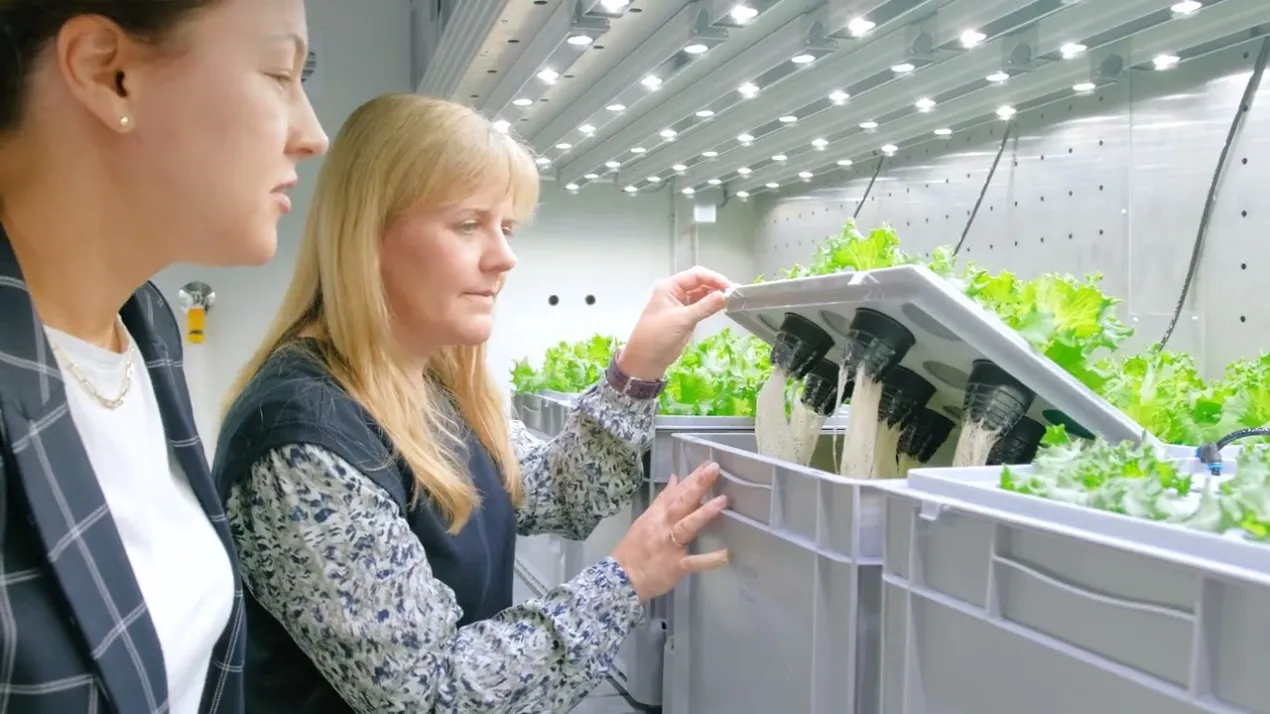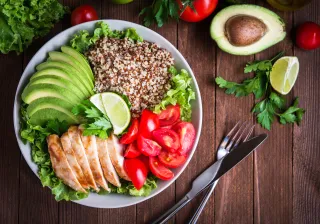How can we cultivate salad, tomatoes, or cabbage on the Moon? Most likely, it will happen in growth chambers, where plants are nourished by water and nutrients instead of soil. But plant roots still need something to anchor themselves, and that’s where VTT’s innovation comes in.
VTT is contributing to the Lunar Plant project, a Norwegian-led initiative to develop sustainable food production for lunar bases. While this project targets space exploration, VTT's groundbreaking research on cellulose-based plant support holds transformative potential for sustainable farming here on Earth as well.
Hydroponic cultivation: Water, nutrients, air – and root support
VTT's primary contribution to the Lunar Plant project is the development of a cellulose-based growing medium used as root support in hydroponic systems. Hydroponics, a method of growing plants without soil, is considered crucial for closed-loop life support systems for long-term space missions.
“We utilized the foam forming technology, a technique VTT has been developing over 15 years, to create the growing media,” says Elina Pääkkönen, Senior Scientist in the project.

“One of the key advantages of this cellulose-based substrate is its biocompatibility, meaning that plants respond positively to it,” says Sara Paunonen, Senior Scientist at VTT. “This plays a crucial role in maximizing plant growth and yields in a hydroponic system. Furthermore, using cellulose aligns with the project's commitment to circular resource utilization, as it can potentially be sourced from plants cultivated on the lunar base”.
Closing the loop by maximizing resource efficiency
“While the project currently relies on straw as a readily available raw material, we are envisioning substituting it with plant waste like tomato stalks in the future, furthering the closed-loop approach,” says Paunonen.
Closed-loop thinking is also at the core of scientific advancements. CIRiS, the Center for Interdisciplinary Research in Space, leading the Lunar Plant project is optimizing nutrient solutions based on remineralised organic waste for plant hydroponic cultivation and analyzing the plant responses in nutrient solution. Their innovative solutions are essential for supporting plant growth in the Moon's hydroponic systems.

VTT's research goes beyond just supplying the material. The team is actively working to optimize the material properties, such as water absorption, porosity, and chemical composition, to meet the unique requirements of hydroponic cultivation. This involves close collaboration with other project partners to ensure that the growing medium effectively supports plant growth and integrates seamlessly with the overall hydroponic system.
Big impacts on sustainable food production on Earth
While the Lunar Plant project focuses on space exploration, VTT recognizes the broader potential of the research. The findings could in fact revolutionize sustainable food production on Earth, particularly in the face of climate change and the increasing demand for resilient agricultural practices.
"On Earth, the challenge is that the climate is changing, temperatures are rising, and we have extreme conditions. Greenhouse cultivation is on the rise, and innovative growing media are needed,” says Pääkkönen.
She further emphasized the need for locally sourced, sustainable alternatives to traditional substrates like rock wool, peat, and coconut fibre, highlighting the potential of VTT's cellulose-based materials.
GROW – A new research collaboration on cellulosic growing media
As the Lunar Plant project enters its final year, VTT is actively seeking new collaborations and funding opportunities to further develop the cellulose-based growing medium and its applications. The team is particularly interested in securing EU funding to expand their research and explore the full potential of their innovation.
In autumn 2024, the GROW project, funded by Business Finland, began focusing on the utilization of various side steams as growing media. This research is conducted by VTT, Natural Resources Institute Finland (Luke), and Geological Survey of Finland (GTK) in collaboration with eight participating companies.
“VTT's work on the Lunar Plant project demonstrates how space-related research can drive innovation with tangible benefits for life on Earth. The research on cellulose-based plant support is our commitment to sustainable solutions for food production, both on this planet and beyond,” concludes Elina Pääkkönen.







